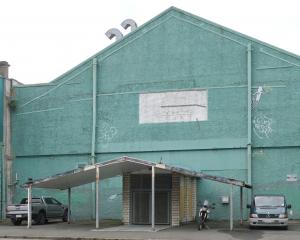Wests (NZ) Ltd's fight to keep its licence continued at the Alcohol Regulatory and Licensing Authority hearing in Dunedin yesterday.
The case was heard after Public Health South medical officer of health Dr Marion Poore and Dunedin City Council licensing inspector Martine Cashell-Smith appealed an earlier decision by the Dunedin district licensing committee to grant Wests a liquor licence.
In a submission to the authority, Wests outlined its position, saying a letter from Dr Poore in April 2014 stating her concerns about the store layout had turned into a ``full-scale assault ... on the integrity of the 140-year-old establishment''.
Director Alf Loretan told the hearing being left in ``limbo'' had been costly for the company.
``Not only in legal fees, but also because of massive distraction and because of lost business opportunities.
``It has taken a major emotional toll on both [wife] Kaye and myself.''
He objected to Dr Poore using the words ``dodgy'' and ``grooming'' to describe activity at Wests.
‘‘In our opinion that was uncalled for, unnecessary, unprofessional and unacceptable coming from a senior public official.’’
He and Wests’ counsel called on the authority to throw out the appeal on the grounds there had been an abuse of process.
He accepted Wests’ situation was unusual and was a ‘‘square peg’’ in a round hole, but was happy to take direction about what it could do to meet the requirements of the legislation.
Dr Poore’s counsel, Gregor Allan, apologised for any offence caused by Dr Poore’s language, but said the submission from Wests contained ‘‘more than a smattering of hyperbole’’.
‘‘Much has been made this morning of some implicit fault of the medical officer of not holding Mr Loretan’s hand.’’
But it was not the function of Dr Poore to ‘‘engage in outreach with affected entities and to help steer them through the legal mire that is this legislation’’.
‘‘If there is an unusual feature, it lies not in the nature of the premises I submit, but in the applicant’s persistent failure to understand what this Act requires of him.’’
Mr Allan and Ms Cashell-Smith reiterated there was no way under the Sale and Supply of Alcohol Act that Wests, in its present form, could qualify for an off-licence.
Both argued that despite there being a curtain separating the area where alcohol was sold, all customers used a single till and entered the same door.
This meant it was the same premises and in order to qualify for a liquor licence it needed to prove 85% of sales were from the sale of alcohol — which it had not done.
Even if it was concluded the two parts of the business qualified as separate shops, the Act did not allow for ‘‘shops within shops’’ to sell alcohol.
Mr Allan said there was ‘‘nowhere near the degree of separation’’ required under the Act.
He disagreed with the contention from Mr Loretan there had been a ‘‘major change of stance’’ since 2014, saying Dr Poore had always been concerned about the alcohol not being separated from other items sold there.
Mr Loretan and Wests’ counsel Werner van Harselaar said the fact these arguments were not contained in Dr Poore’s original submission represented an abuse of process and the case should be thrown out.
However, Mr van Harselaar asked the authority to provide guidance on how Wests
could meet the requirements on the Act, saying Wests would be happy to make changes if required.
The authority reserved its decision.











